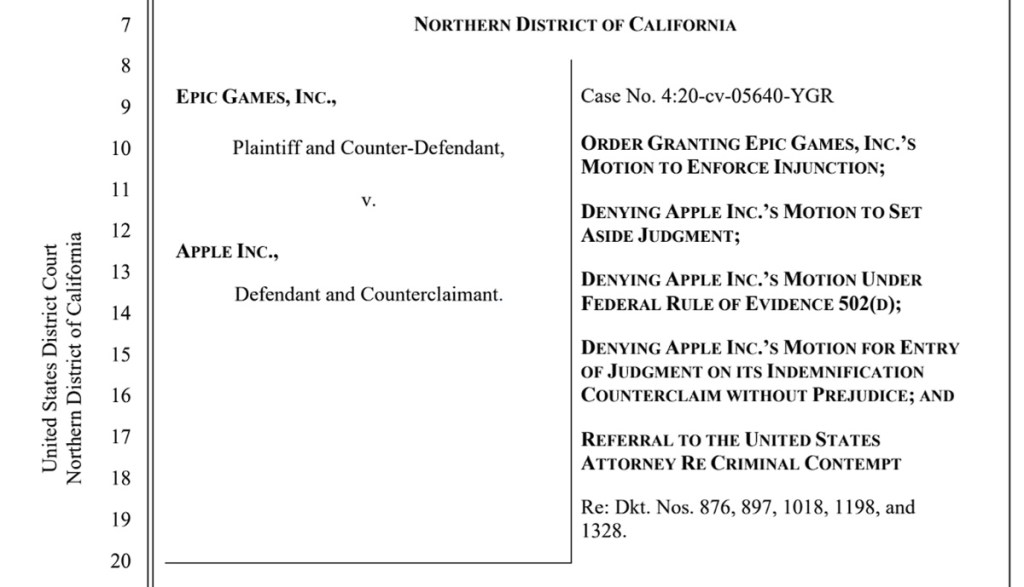Epic Games touts victory in latest court ruling in Apple antitrust case

A federal district court judge found that Apple willfully violated a court order in Epic Games vs. Apple antitrust case.
Tim Sweeney, Epic Games’ CEO, tweeted about the court victory, saying “NO FEES on web transactions. Game over for the Apple Tax.”
If Sweeney is correct in his interpretation of the ruling, it could be a lucrative outcome for Epic Games, whose Fortnite has been banned by Apple in the U.S., largely because of the litigation.
He said that “Apple’s 15% to 30% junk fees are now just as dead here in the United States of America as they are in Europe under the Digital Markets Act. Unlawful here, unlawful there.”
U.S. District Court judge Yvonne Gonzales Rogers held Apple in contempt of her prior court ruling. She wrote, “For the reasons set forth herein, the court finds Apple in willful violation of this court’s2021 injunction which issued to restrain and prohibit Apple’s anticompetitive conduct andanticompetitive pricing. Apple’s continued attempts to interfere with competition will not betolerated.”
Sweeney noted that the case has been going on for four years, four months and 17 days.
“We will return Fortnite to the US iOS App Store next week,” said Sweeney. “Epic puts forth a peace proposal: If Apple extends the court’s friction-free, Apple-tax-free framework worldwide, we’ll return Fortnite to the App Store worldwide and drop current and future litigation on the topic.”
We’ve asked Apple for comment. Gonzales Rogers wrote in her ruling, “Apple’s response to the Injunction strains credulity. After two sets of evidentiary hearings, the truth emerged. Apple, despite knowing its obligations thereunder, thwarted the Injunction’s goals, and continued its anticompetitive conduct solely to maintain its revenue stream. Remarkably, Apple believed that this Court would not see through its obvious cover-up (the 2024 evidentiary hearing). To unveil Apple’s actual decision-making process, not the one tailor-made for litigation, the Court ordered production of real-time documents and ultimately held a second set of hearings in 2025.”
To summarize: the judge wrote, “One, after trial, the court found that Apple’s 30 percent commission “allowed it to reap supracompetitive operating margins” and was not tied to the value of its intellectual property, and thus, was anticompetitive. Apple’s response: charge a 27 percent commission (again tied to nothing) on off-app purchases, where it had previously charged nothing, and extend the commission for a period of seven days after the consumer linked-out of the app.
She added, “Apple’s goal: maintain its anticompetitive revenue stream. Two, the Court had prohibited Apple from denying developers the ability to communicate with, and direct consumers to, otherpurchasing mechanisms. Apple’s response: impose new barriers and new requirements to increasefriction and increase breakage rates with full page “scare” screens, static URLs, and genericstatements. Apple’s goal: to dissuade customer usage of alternative purchase opportunities andmaintain its anticompetitive revenue stream. In the end, Apple sought to maintain a revenuestream worth billions in direct defiance of this Court’s Injunction.”



